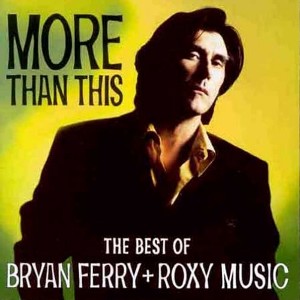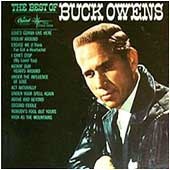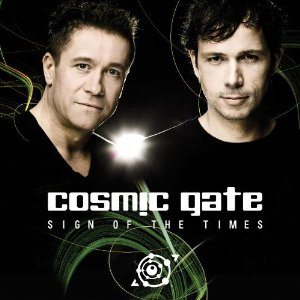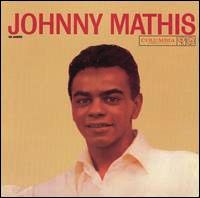
Speak & Spell is the debut studio album by English electronic music band Depeche Mode. It was released on 5 October 1981 by Mute Records. It was the band's only album with Vince Clarke, and as a result, is much lighter in tone than their subsequent releases.
Cordell "Boogie" Mosson was an American bassist who was a member of Parliament-Funkadelic.

James Matthew Dewees is an American musician best known for his work with The Get Up Kids, Reggie and the Full Effect and My Chemical Romance. He has also been involved in other musical projects including New Found Glory, Coalesce, Leathermouth, and Death Spells.

Beyond Elysian Fields is an album by Hugh Cornwell. It was produced by Tony Visconti and released by Invisible Hands Music in 2004 in the UK, with a worldwide release in 2005.

"Cant Get There from Here", or "Can't Get There from Here", is the first single released by R.E.M. from its third studio album Fables of the Reconstruction in 1985. The song peaked at number 10 on the Billboard Bubbling Under Hot 100 Singles, equaling to a position of approximately 110 on the main Billboard Hot 100 chart. It also peaked at number 91 on the Canadian Singles Chart. It was re-released in 2006 on a compilation disc, And I Feel Fine... The Best of the I.R.S. Years 1982–1987.

More than This a 1995 compilation album featuring music by Roxy Music and solo songs by the group's lead singer, Bryan Ferry. The name of the album is taken from the song "More than This" from the 1982 Roxy Music album Avalon.
Candi & The Backbeat was a Canadian pop band fronted by lead vocalist Candita "Candy" Pennella. Band members included Nino Milazzo, Paul (Baldy) Russo, and Rich Imbrogno (keyboards). The band is best known among U.S. audiences for the freestyle classic "Dancing Under a Latin Moon", a major dance hit which also made number 68 on the Billboard Hot 100 in 1988.

"What It Takes" is a power ballad by American hard rock band Aerosmith. Written by Steven Tyler, Joe Perry, and Desmond Child, it was released in 1989 as the third single from the critically and commercially successful 1989 album Pump. "I'll put some ballads on an album," Tyler remarked, "if that's what it takes so that some young kid can get to hear a 'Young Lust' or 'F.I.N.E.*'."

"Dan Dan Kokoro Hikareteku" is the fourth single by Japanese rock band Field of View. The single charted #4 rank in Oricon for first week. It charted for 11 weeks. The song serves as the theme song to the anime series Dragon Ball GT. It sold a total of 528,150 copies.
Here is an adverb that means "in, on, or at this place". It may also refer to:

"D-I-V-O-R-C-E" is an American country music song written by Bobby Braddock and Curly Putman, and made famous by Tammy Wynette. Wynette's version was a number one country hit in 1968.
Luv Bug are a Northern Irish pop band originating from Newry. They are most famous for representing Ireland in the Eurovision Song Contest in 1986 with the song "You Can Count on Me".

The Best of Buck Owens is a compilation album by Buck Owens, released in 1964. It reached Number two on the Billboard Country Albums charts and Number 46 on the Pop Albums charts. It also peaked at No. 1 in Norway and stayed on the charts for 222 weeks there, becoming the most successful album of all time in that country.

The Spell is a 1997 solo album by singer and songwriter Ivan Doroschuk, the leader of Men Without Hats, recording as "Ivan."

Sign of the Times is the fourth studio album by trance duo Cosmic Gate. It was released on March 23, 2009 in Germany. A deluxe edition was released and included remixes of the original songs by other DJs such as Arty and Markus Schulz.
Desire is a Canadian electronic music band from Montreal, formed in 2009. The band consists of vocalist Megan Louise, producer Johnny Jewel, and Nat Walker on synthesizer and drums. Their debut studio album, II, was released on June 30, 2009 on the Italians Do It Better label. Their lyrics are in French and English.

Johnny Mathis is the debut studio album by vocalist Johnny Mathis that was released by Columbia Records in 1956. The subtitle A New Sound in Popular Song can be found on the back cover but not on the front of the album or the disc label; in fact, this Mathis LP has been referred to as "the jazz album".
Ralph Mooney was a well-known steel guitar player. He was inducted into the Steel Guitar Hall of Fame in 1983. He was the original steel guitarist in The Strangers.
See You Tour was a 1982 concert tour by English electronic group Depeche Mode in support of the act's fourth UK single, See You, which was released on 29 January 1982. The song was later included in the band's 2nd studio album, "A Broken Frame", which was released on 27 September 1982.

Got You on My Mind is the third studio album released by American country artist, Jean Shepard. The album was issued in February 1961 on Capitol Records and was produced by Ken Nelson. The album would be one of a series of albums Shepard would record for the Capitol label during the sixties. Although the album did not spawn singles, it was one of country music's first records by a female artist.














